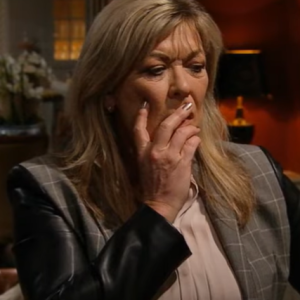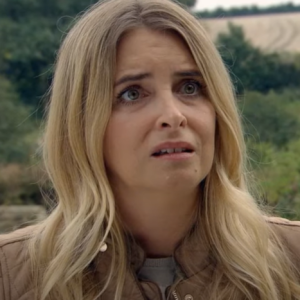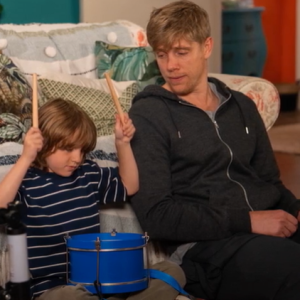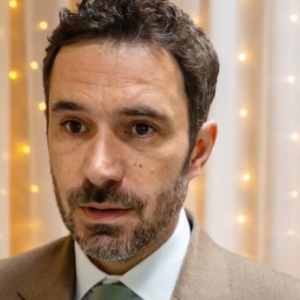In the annals of soap opera history, family feuds are a narrative staple, often serving as the emotional bedrock of their long-running sagas. Yet, every so often, a storyline emerges that transcends the conventional squabbles over inheritances or romantic entanglements. It delves into a realm far darker, a psychological labyrinth that burrows under the skin, leaving audiences genuinely disquieted. Right now, in the heart of the idyllic Yorkshire Dales, the beloved British serial drama Emmerdale is masterfully orchestrating precisely such a narrative with its chilling portrayal of the Sugden brothers’ rivalry. What viewers are witnessing is not merely a fraternal conflict; it is a meticulously crafted, slow-burn campaign of psychological warfare that has gripped the nation, leaving us collectively holding our breath in anticipation of its devastating climax.
For weeks, fans have watched with growing apprehension as Robert Sugden, a character who has fought tooth and nail for a semblance of redemption and stability, has been systematically dismantled. The architect of his unravelling? None other than the village’s presumed hero, Paramedic Jon. It is a terrifying truth that the most formidable villains are rarely those who rage and outwardly threaten. Instead, they are the ones who wear a mask of benevolence, smiling to your face while methodically, painfully, disassembling your life piece by agonizing piece. Jon, as Emmerdale has so chillingly demonstrated, is an insidious master of this art. The simmering tension between the half-brothers finally boiled over in a recent string of episodes, culminating in a series of events that left the audience breathless and underscored the sheer brutality of Jon’s manipulation.
Robert, ever the emotionally complex and often misunderstood figure, gradually began to perceive Jon not as a benevolent savior, but as a predator, relentlessly circling his family. He sensed a deeply unsettling undercurrent beneath Jon’s life-saving heroics and the almost suffocating manner in which he had embedded himself into the lives of those Robert held dear, particularly his partner Aaron and his sister-in-law Victoria. Yet, the tragic irony for Robert was that when you are the sole individual who discerns the monster beneath the façade, everyone else is prone to conclude that you are merely losing your grip on reality. Jon, ever the calculating strategist, remained one step ahead, perpetually anticipating Robert’s every move.
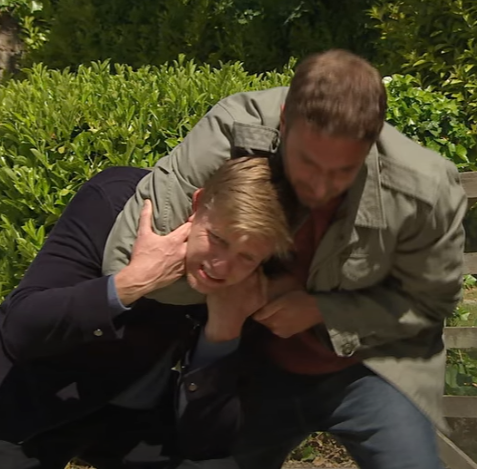
Realizing his meticulously constructed mask was perilously close to slipping, Jon launched a pre-emptive offensive, a chilling testament to his calculating nature. The act of planting a sophisticated listening device within Victoria’s supposedly sanctuary-like home was not merely a means of information gathering; it was a profound violation, a calculated invasion of the one place Robert should have felt secure. Jon twisted their most private moments, their most intimate fears, and their unguarded conversations into potent ammunition. He unearthed the fact that Robert, in a desperate and misguided act, had stolen weed from Butler’s Farm – an act of desperation, to be sure, but one Jon could expertly spin into something far more sinister and damning.
Armed with this stolen information, Jon masterfully painted Robert as the village pariah. He strategically divulged his twisted narrative to Ross Barton, effectively framing Robert not only as a petty thief but also as the true culprit behind a recent break-in. The subsequent scene was heartbreakingly effective in its raw portrayal of betrayal and isolation. Watching the villagers, individuals Robert had known for years, turn on him with such venomous conviction was profoundly painful. His desperate pleas, his earnest attempts to expose Jon’s bizarre and increasingly controlling behaviour, fell on deaf ears, drowned out by the rising tide of public condemnation. They saw only a troubled man lashing out, precisely as Jon had intended. You could palpably feel Robert’s world shrinking, the walls of his reality closing in as his credibility was systematically shattered by a man who wore the impenetrable halo of public trust.
The conflict then escalated from psychological torment to terrifying physical confrontation, a moment where Jon’s true, chilling colours bled through unmistakably. In a harrowing face-off, he subjected Robert to a brutal session of gaslighting, twisting his words and distorting reality until Robert himself likely questioned his own sanity. Then, with a cold, terrifying resolve, he physically restrained Robert. It was a raw, visceral display of power, a man asserting his terrifying dominance over a cornered and visibly terrified victim. That single moment, that physical trapping, proved to be the spark that ignited the fuse of Robert’s primal fear. In a surge of pure, desperate self-preservation, Robert instinctively grabbed the nearest object – a wrench – and struck out, a desperate act before fleeing into the harrowing uncertainty of the night.
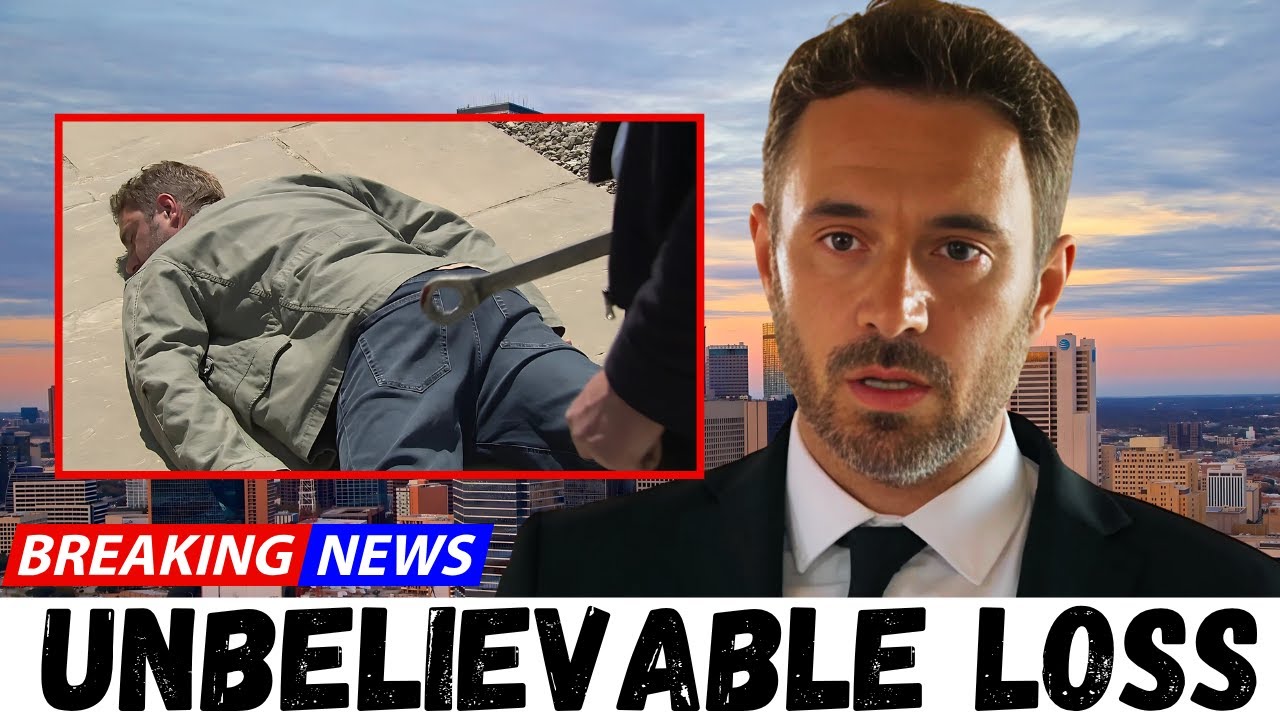
The most recent episode plunged viewers into the devastating aftermath, with the ever-loyal Victoria caught in an impossible, heart-wrenching position. With her family shattered, she desperately tried to glue the fractured pieces back together. She pleaded with a frantic Robert not to go on the run, acknowledging the devastating implications of such a choice. She then faced the daunting task of confronting Jon in his hospital bed, her request simple and heartfelt: “Don’t ruin Robert’s life. Don’t go to the police.” Both Aaron and Jon met her desperate plea with a chilling irritation, a reaction that spoke volumes about their respective priorities. Jon, playing the victim with sickening perfection, labelled the attack “totally unprovoked,” a lie so blatant it was breathtaking in its audacity.
Meanwhile, Robert, stripped bare of his pride and dignity, was understandably reluctant to beg for his freedom from the very man who had so cruelly pushed him to the precipice of despair. Yet, for Victoria’s sake, he ultimately complied. In a scene thick with humiliation and raw emotion, Robert offered an apology to his tormentor. His explanation was brutally honest, cutting to the very heart of his profound pain and insecurity. “I felt threatened,” he admitted, his voice heavy with the crushing weight of it all. “I felt like you’d taken my place, living my life with Vic, with Aaron.” It was a confession of deep-seated insecurity and primal fear, the very vulnerabilities Jon had so expertly exploited throughout his campaign of terror.
Was Jon moved by this raw display of remorse? Of course not. Perhaps a flicker of triumphant satisfaction, but certainly no empathy whatsoever. Still, he agreed not to involve the police, but his supposed mercy came with an excruciatingly heavy price. Robert had to formally drop all his accusations against Jon and, most painfully, agree to stay away from Aaron. It was checkmate. Jon had not only isolated Robert from the village community, discrediting him in the eyes of his neighbours, but was now systematically severing his closest emotional bonds, ensuring Robert was truly, utterly alone.

But the most bone-chilling moment was yet to come, a reveal that promises to cast an even darker shadow over Robert’s future. After being discharged from the hospital, a seemingly magnanimous Jon walked calmly to his car. The “truce,” it became horrifyingly clear, was nothing more than a meticulously crafted sham. With a chilling composure, he retrieved a memory card, and with it, the dashcam footage containing the entire, brutal violent confrontation. As he gazed at the damning evidence clutched in his hand, a slow, deeply unsettling smile spread across his face. It was not a smile of relief or of justice finally served. It was the predatory grin of a man who holds the ultimate leverage, a devastating trump card that he can play at any given moment to utterly destroy his rival. Jon has Robert exactly where he wants him: silenced, discredited, and living under the constant, agonizing threat of complete exposure and ruin.
Jon is no longer merely plotting against Robert; he effectively owns him. The question that now hangs heavy in the Emmerdale air is not if he will use this devastating leverage, but how and when. What is his ultimate endgame for Robert Sugden, whose life has been so tragically redefined by this insidious torment? And how, in the face of such overwhelming manipulation and power, can Robert ever hope to fight back against a villain who seems to have everyone, and now everything, unequivocally on his side? This is more than just a typical soap opera storyline; it is a masterclass in psychological drama, plumbing unprecedented depths of human cruelty and vulnerability, leaving Emmerdale fans on the edge of their seats, fearing the tragic death of Robert’s freedom and peace of mind, a breaking news story that promises to resonate for years to come.
